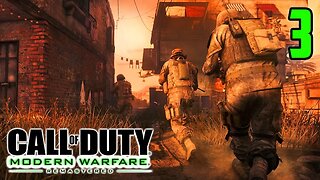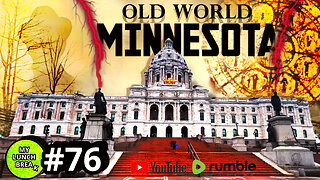"Armageddon" | The Battle of Armageddon: The Time of the Final War in Bible
A great battle is coming, and it’s called Armageddon. It will impact every person on the face of the earth. No one will escape. The world will be divided into two opposing forces, and both will come head-to-head this showdown. It will be the greatest battle ever fought. But the outcome will be totally unexpected!
The New Testament refers to the city of Armageddon in Revelation 16:16. However, there is no specific mention of armies gathering there. The Book of Revelation describes a series of prophetic visions that culminate in the Second Coming of Jesus. These visions include figures such as the Seven-Headed Dragon, the Serpent, and the Beast.
The concept of Armageddon as a "last war" or a final apocalyptic battle is primarily associated with the Book of Revelation in the Bible. While the term "Armageddon" itself is derived from Revelation 16:16, the specifics of this battle are described in various passages throughout the book.
In the Book of Revelation, Armageddon is portrayed as a climactic battle that occurs at the end of the world, marking the ultimate confrontation between the forces of good and evil. The main elements of this event as described in Revelation include:
Gathering of Forces: Revelation 16:14-16 mentions the gathering of armies under the influence of demonic spirits to a place called Armageddon. This gathering is a prelude to the final conflict.
The Return of Christ: Revelation also speaks of the return of Jesus Christ, who comes as a conquering warrior to lead the forces of righteousness in this battle (Revelation 19:11-16).
Battle and Victory: Revelation 19:19-21 describes the actual battle, where the forces of evil are defeated, and the beast and false prophet are cast into a lake of fire. This marks the ultimate triumph of good over evil.
The New Heaven and Earth: Following the battle, Revelation goes on to describe the creation of a new heaven and a new earth, symbolizing the renewal and transformation of the world (Revelation 21:1-4).
It's important to note that interpretations of these passages and the concept of Armageddon can vary among different religious traditions and scholars. Some view these events as symbolic or metaphorical, while others believe in a more literal interpretation of a future, cataclysmic battle. The Book of Revelation is known for its symbolic and allegorical language, making it a subject of theological and eschatological debate throughout history.
-
 46:57
46:57
Crime Circus
21 hours agoApple River ST*BBING!! Stand Your Ground Interrogation of Man in Wisconsin
7.95K4 -
 9:39
9:39
Tactical Advisor
1 day agoHow To Improve Your Shooting For FREE! Mantis Blackbeard X
10.2K6 -
 1:00:59
1:00:59
Squaring The Circle w/ Randall Carlson
21 hours ago#007 The Real Climate Crisis Noone Is Talking About and Mount Tambora Pt 2
11.9K9 -
 13:52
13:52
America Uncovered
21 hours agoEveryone is WRONG About Trump's Guilty Verdict
7.5K27 -
 13:10
13:10
Censored TV
20 hours agoThe Owen Benjamin vs Jim Goad debate was WILD
9.14K13 -
 25:27
25:27
Degenerate Plays
12 hours agoThe Microtransaction Master - Call Of Duty Modern Warfare Remastered : Part 3
8.31K1 -
 21:03
21:03
MYLUNCHBREAK CHANNEL PAGE
16 hours agoOld World Minnesota?
13.1K17 -
 5:49:05
5:49:05
Akademiks
22 hours agoDrake Next Move - Whats next?? Did Lil Baby Listen to Me? Diddy and Family Preparing for Indictment?
68K35 -
 1:56:06
1:56:06
TimcastIRL
1 day agoTrump Raises RECORD $52.8 MILLION In One Day, Bonus Uncensored Show w/Laura Loomer | Timcast IRL
88.2K379 -
 23:19
23:19
Scammer Payback
4 days agoWe Created the First Ever 𝗔𝗡𝗧𝗜-𝗦𝗖𝗔𝗠 Call Center
212K248